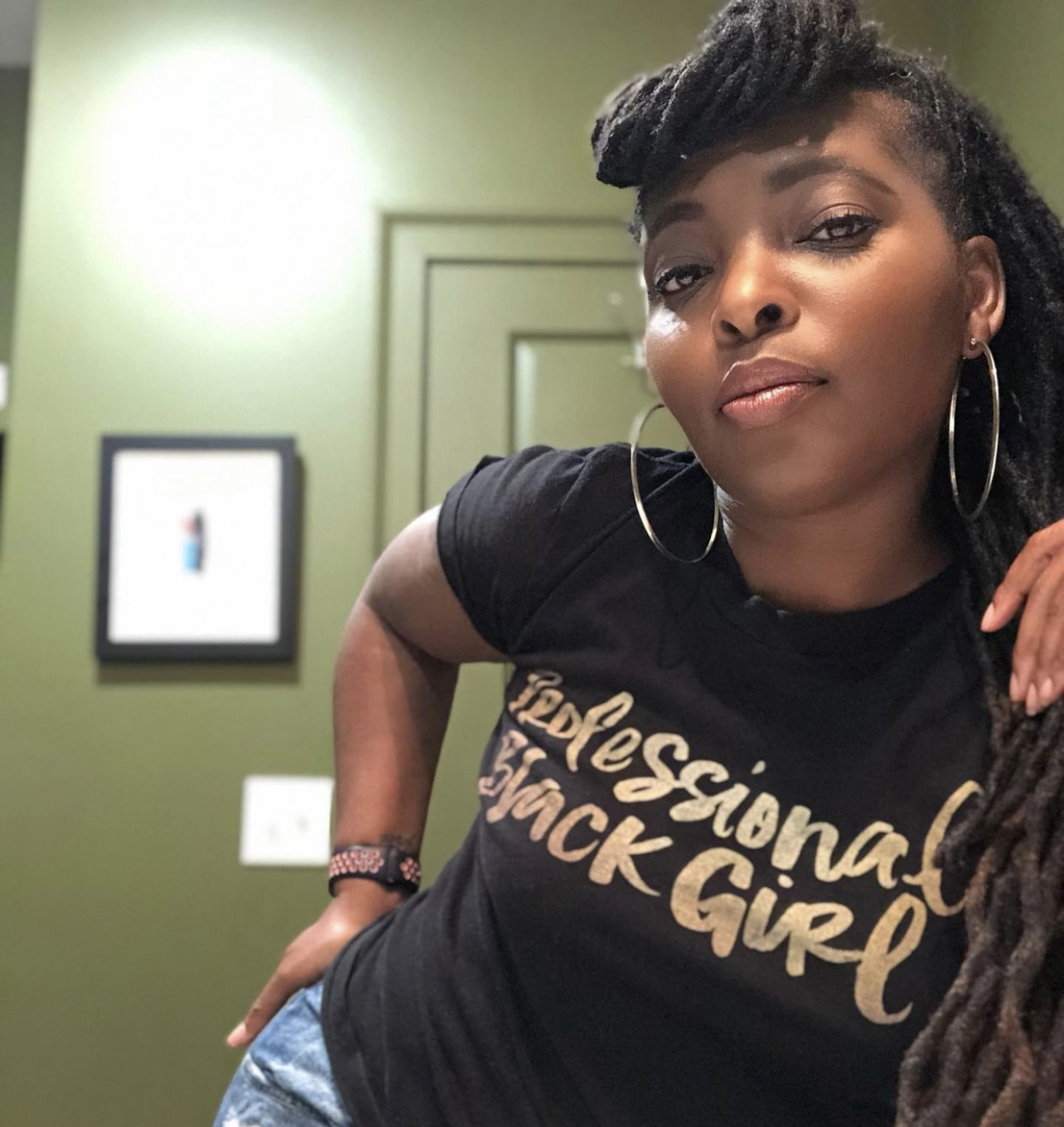
Courtesy of Denene Millner
A sudden challenge in Denene Millner’s health was the wake up call she needed to change her life – immediately.
“One day I went to get on the train to get to work and I could not walk,” recalls the New York Times best-selling author of 31 books and publisher of the Simon and Schuster eponymous imprint that centers on Black children’s stories. “My entire right leg seized up on me and I was literally dragging my leg like I’d had a stroke.”
Later that day, a doctor attributed her leg seizing and cramping to stress. She was also diagnosed as being pre-diabetic, which she has since learned can be brought on not just by dietary choices, but also by stress.
Millner’s stress around her work-life balance is an experience that Black women have in high numbers. According to Lean In, Black women face more day-to-day discrimination at work and a wider range of microaggressions, as well as receiving fewer opportunities to manage people and projects. The National Women’s Law Center reports Black women earn 37 percent less than White men and 20 percent less than White women.
These factors can certainly result in the type of stress that leads to health crises like the one Millner experienced when she was an editor at Parenting magazine, where she was one of two Black people on staff. She was working crazy hours, arriving home after 8 pm every night, just in time to only kiss her young daughters goodnight before they went to bed.
She states that Parenting “required me to check myself at the door and think solely of white women and the way they raise their children,” she said. “Plus I was squeezing in my entire life on the weekends, trying to be a good mother, a good wife, a good housekeeper. And it was driving me absolutely insane.”

Source: Courtesy of Denene Millner / D. Millner
Get Money
Millner got busy and changed her life, eventually becoming a full-time entrepreneur where she could control her environment, prioritize what was important to her and reduce her stress significantly.
What surprised her the most about her transition was that she could make more money as her own boss. The first evidence was when she became a freelance writer of a column she’d edited as a full-time, in-person employee of Parenting. Writing the column remotely as a freelancer paid her more than editing as an in-office employee because she benefitted from savings gleaned from transportation costs and lunches she didn’t have to buy as a full-time employee.
“Becoming my own boss, I made so much more money depending on myself than walking into anybody’s office,” said Millner, who began her career reporting on politics and entertainment at the Associated Press and the New York Daily News. “I thought that I would struggle making three-fourths or the same amount. I was actually making double.”
While she feels her transition to full-time entrepreneurship was natural and fruitful, she still had to be intentional and brave to step away from the understandable career practices and perspectives common in communities that have been marginalized for hundreds of years. “We are the children of a generation of Black folks who believed in keeping a job, making good money and having benefits,” said Millner, who now creates opportunities for others through her imprint that celebrates Black narratives.
Work Smarter, Not Harder
As she was growing her business, Millner realized that she didn’t want working to exhaustion to be part of her new life. Working smarter would require her to be more discerning, and not accept every opportunity she was offered – particularly those that were not representative of her worth.
The challenge was keeping the grind going. “Just because I did a story today and handed in a book today didn’t give me the ability to take a break,” said Millner, who wrote a book every year from 2005 to 2020, except 2011, when she helped her family stay afloat via My Brown Baby, her successful website for Black parenting.
“When you’re a freelancer and an entrepreneur, you have to keep the gears moving at all times, so checks are always waiting to come in…It is no different than anyone else who has to pay their bills monthly. Some people get up in the morning, and have to present themselves in an office and answer to a boss. I have to answer to Denene.”
But she’s no longer working at that pace. “I am finally to the point where I can work smarter rather than harder. I was a hustler. I was saying yes to everything,” said Millner, who was once told by a generous supervisor that she was being paid $20,000 less than every man around her, as well as not receiving the holiday bonuses given to her colleagues. Millner received increases in her salary until that supervisor was fired six months after their illuminating conversation.
These days, although she admits to still struggling with asking for compensation that aligns with her expertise and experience, Millner is thriving because, not only are her book deals now lucrative, she’s also changed her mindset and put her new perspective into action.
“Conditioning and society make women feel like we should be grateful for what we are getting instead of walking in and saying, ‘This is what you should be paying me because this is the amount of sweat equity that it takes. This is the amount of expertise that comes with my 35 years of experience. You don’t get to just get me for pennies,’ ” she said. “I have learned how to set boundaries. I can say yes to an essay, but you know that if I say yes, it is because I’m being paid what I am worth, and not what you think I’m worth.”
Pay Attention and Plan Ahead
Not sure if or when you should make a move? Millner recommends paying close attention to how you’re feeling at the start of each day and listening to your body. “I would say if you wake up in the morning and you absolutely hate what you’re doing, and you have to have whole pep talks with yourself to get to the office, it’s probably not something you should be doing anymore – especially if you see it manifest in your mental and physical health,” she said, noting that stress can bring on or exacerbate conditions common in the Black community, including diabetes, thyroid issues, high cholesterol and high blood pressure.
Millner’s health challenge led to her envisioning a new life for herself and her family. When making a significant change, she advises planning ahead. “It can’t be, today is Monday, somebody got on my nerves, so I’m going to quit on Tuesday. It has to be you using your connections and setting yourself up for success.”
When she decided to leave New York for more affordable metro Atlanta, her family partially relied on the job held by her now ex-husband. And she gave her network a heads up early. “I let them know months ahead of time that I would be transitioning to being a full-time freelance writer. ‘I’m writing these freelance stories for you while I have this full-time job and I’m writing books at night, because I want you to remember that I am a go to person for feature stories and essays,” she remembers telling her editors.
“I used my connections that I had built over time in my full-time jobs for the work that I needed to sustain myself as a freelancer. Whether you are a stock trader, an architect, or a secretary, it is always about setting yourself up for success. What is it that you want to do? How can you go about achieving it and who in your business and personal circles can help you? Now, we all have haters who are not going to see the vision. You can’t let that stop you. It is literally about planning and executing – and creating those connections ahead of time, so when it is time for you to make that change, you can. And it can be seamless.”









